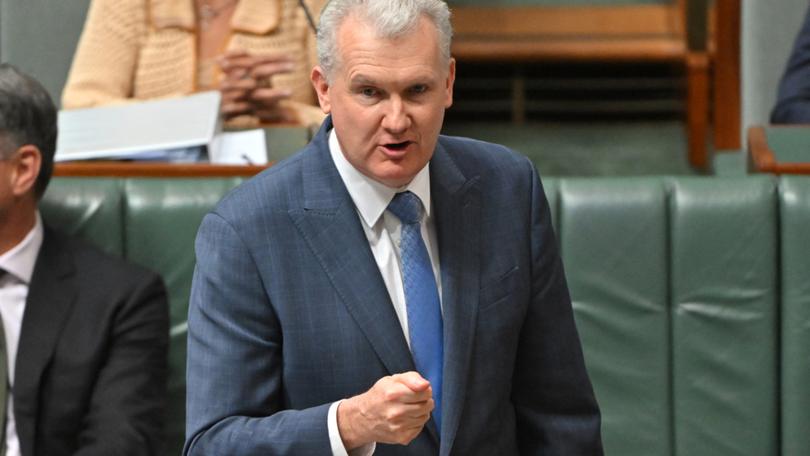Tony Burke shelves next tranche of IR reforms, heads off election-year fight with business
The Federal Government has quietly shelved plans to develop a scheme where workers can carry their leave from job to job, avoiding a fresh industrial relations war with business in the run-up to the election.

The Federal Government has quietly shelved plans to develop a scheme where workers can carry their leave from job to job, avoiding a fresh industrial relations war with business in the run-up to the election.
Workplace Relations Minister Tony Burke overruled his department and aborted a consultation process that was scheduled to start as soon as this month.
Mr Burke’s spokesman said the Government decided not to proceed with the plan after business appealed for more time to adjust to the waves of workplace changes already passed this term.
Sign up to The Nightly's newsletters.
Get the first look at the digital newspaper, curated daily stories and breaking headlines delivered to your inbox.
By continuing you agree to our Terms and Privacy Policy.The proposed scheme, known as portable entitlement and which is already in place in a number of States and Territories, allows workers to carry their leave and sick pay when they move to another job or project in the same industry.
WA has a portable long-service scheme for construction workers.
The surprise decision — just a month after bureaucrats said they were working on the new IR agenda — heads off an election-year brawl with industry, which feared portable entitlements would add further costs to businesses and strike another blow to productivity.
But it also means Labor is poised to break a 2022 election promise, having pledged to consult with State and Territory governments, unions and businesses on a scheme for workers in insecure jobs.
It is Mr Burke’s first major concession to business leaders since the election, after he rammed through the contentious Secure Jobs, Better Pay and Closing Loopholes bills despite their fierce opposition.
After passing its highly contentious Closing Loopholes Bill earlier this year, the Federal Government was preparing to start consultation as part of its industrial relations agenda for 2024.
At a Senate estimates hearing on February 14, senior Department of Employment and Workplace Relations official Jennifer Wettinger said the process was expected to begin in the “first quarter of this year”.
Government minister Murray Watt, who represented Mr Burke at the hearing, also reaffirmed Labor’s commitment to consulting on the idea.
But just a month later, in response to questions from The West, Mr Burke’s office said the plan was now on the backburner.
“The minister has decided not to approve the department’s proposal to commence consultations on this issue,” Mr Burke’s spokesman said.
“Business has asked the Government for time to adjust to the workplace changes we have already made during this term – and we have listened to that request.”
The West understands it is unlikely Labor will revive the idea before the next federal election, due in May next year.
The decision will be a relief to business leaders who had pleaded with Mr Burke to rule out further changes this term. The private sector is bracing for the full impact of the pro-worker reforms legislated in the first 18 months of the new Labor Government.
Those include an expansion of multi-employer bargaining, a “same job, same pay” scheme for labour-hire workers and the contentious right to disconnect.
Shadow workplace relations minister and WA senator Michaelia Cash had warned the Government portable entitlements would mean “more costs for businesses and lead to fewer jobs”.
“This will do absolutely nothing to help this country’s lagging productivity,” Senator Cash told The West.
“What the business community needs is some stability. They do not another wave of industrial relations changes to add to the radical changes they are dealing with that have been imposed on them by the Albanese Government.”
